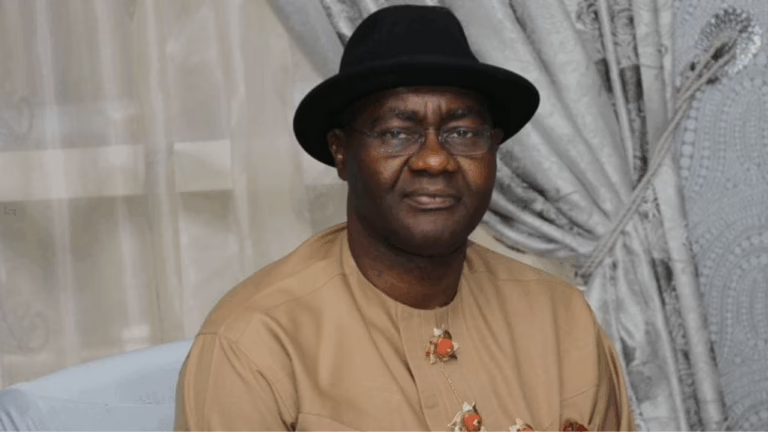Senator Magnus Abe, a former member of Nigeria’s National Assembly, has commended President Bola Tinubu for awarding a posthumous tribute to four prominent late Ogoni leaders. Abe highlighted that Tinubu’s extensive history in pro-democracy activism lends profound significance to this gesture for the Ogoni community.
During an interview on Channels Television’s ‘Politics Today’ aired Wednesday evening, Abe emphasized that Tinubu’s involvement with the National Democratic Coalition (NADECO) in the 1990s aligns closely with the Ogoni people‘s struggle. Both movements emerged as resistance efforts against military authoritarianism and championed the cause of justice.
“We are fortunate to have a president who intimately understands the fight because he was actively engaged in it. The Ogoni movement and NADECO’s campaign shared the same core issues during the same era, confronting military rule,” Abe remarked.
This official recognition, he explained, represents a pivotal step toward mending rifts within the Ogoni community.
“Today’s event is a landmark in uniting these families to collaborate for Ogoni’s advancement. The President acknowledged the Ogoni Nine, who were previously seen as representing one faction, while efforts had been underway to recognize an Ogoni 13. These families have now reconciled, committing to work together for the region’s development. Honouring late Chief Edward Kobani, Chief Samuel Orage, Chief Theophilus Orage, and Albert Badey, former Secretary to the Government of Rivers State, is a testament to this unity. We appreciate President Tinubu for facilitating this healing and moving beyond past conflicts,” Abe stated.
The “Ogoni Nine,” including renowned writer and activist Ken Saro-Wiwa, were executed by Nigeria’s military government in 1995 following a highly disputed trial, an act that provoked international condemnation.
Their execution left a lasting scar on the Ogoni people, creating divisions among families and supporters-some aligned with Saro-Wiwa, others accused of opposition. Abe noted that Tinubu’s inclusive recognition of leaders from both sides has paved the way for reconciliation.
“Many of us personally know these individuals-they are our relatives, friends, and siblings across the divide. It’s unnecessary to revisit the bitterness and grievances that caused the Ogoni split. Our priority now is to restore the land and harness our natural resources for the welfare of our people,” he added.
Abe also drew a comparison to other nations grappling with historical wounds.
“No society is without a troubled past. For instance, the United States continues to confront the legacy of slavery and its enduring impact,” he observed.
He underscored that President Tinubu’s experience as a NADECO leader in exile, who resisted military dictatorship during the 1990s, uniquely equips him to empathize with the Ogoni cause.
“Both the Ogoni and NADECO movements centered on human rights, justice, and opposition to military oppression. The President’s firsthand involvement gives him a deep understanding of this shared history,” Abe concluded.

















